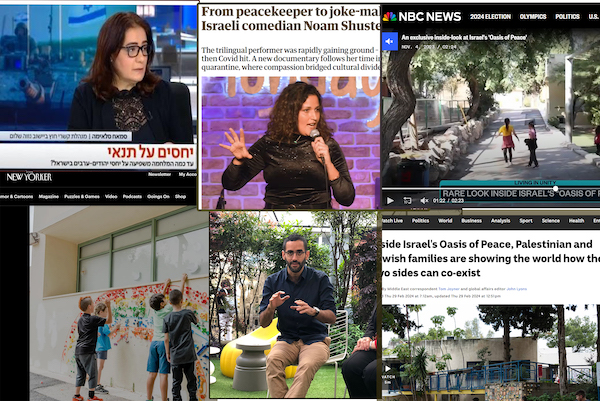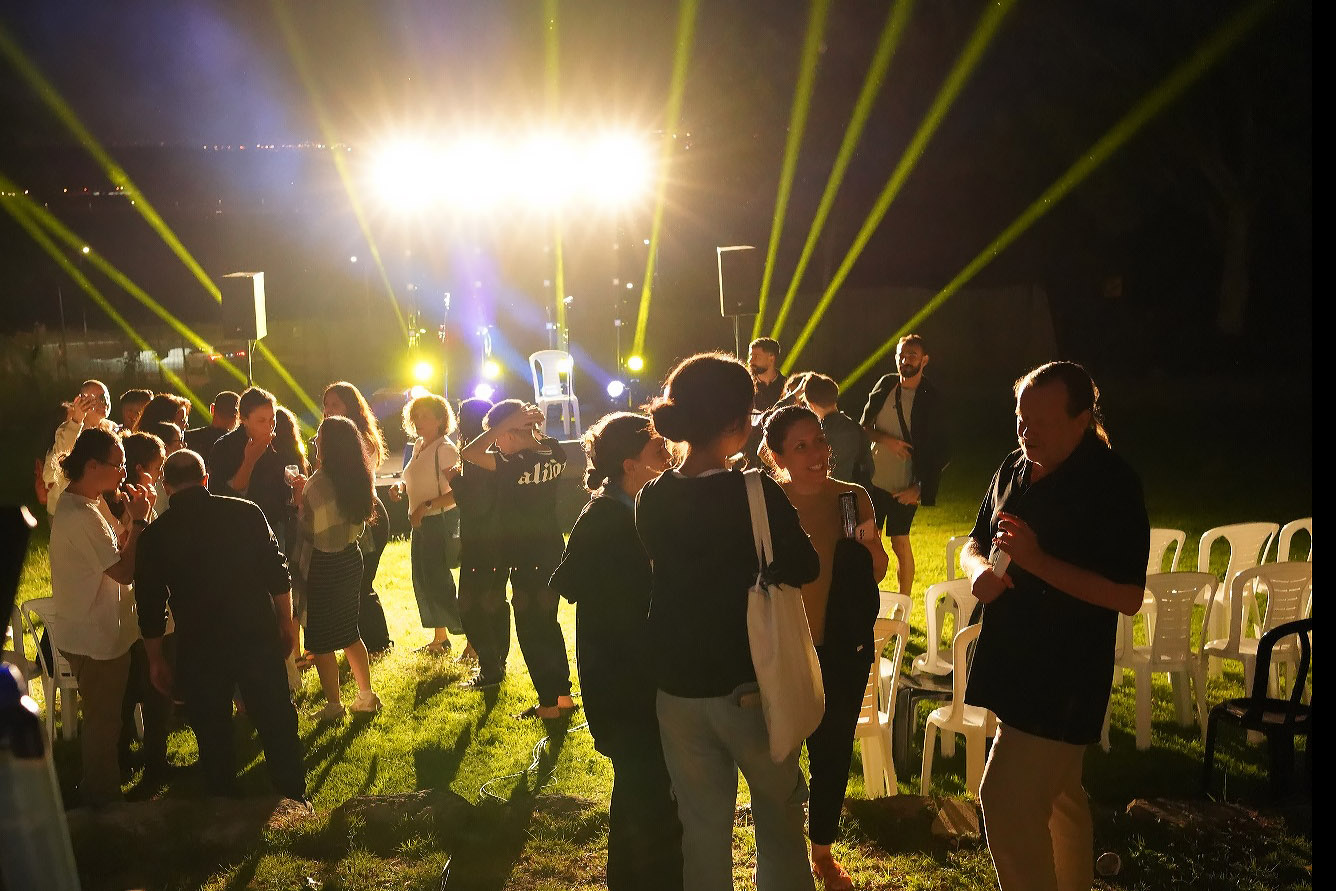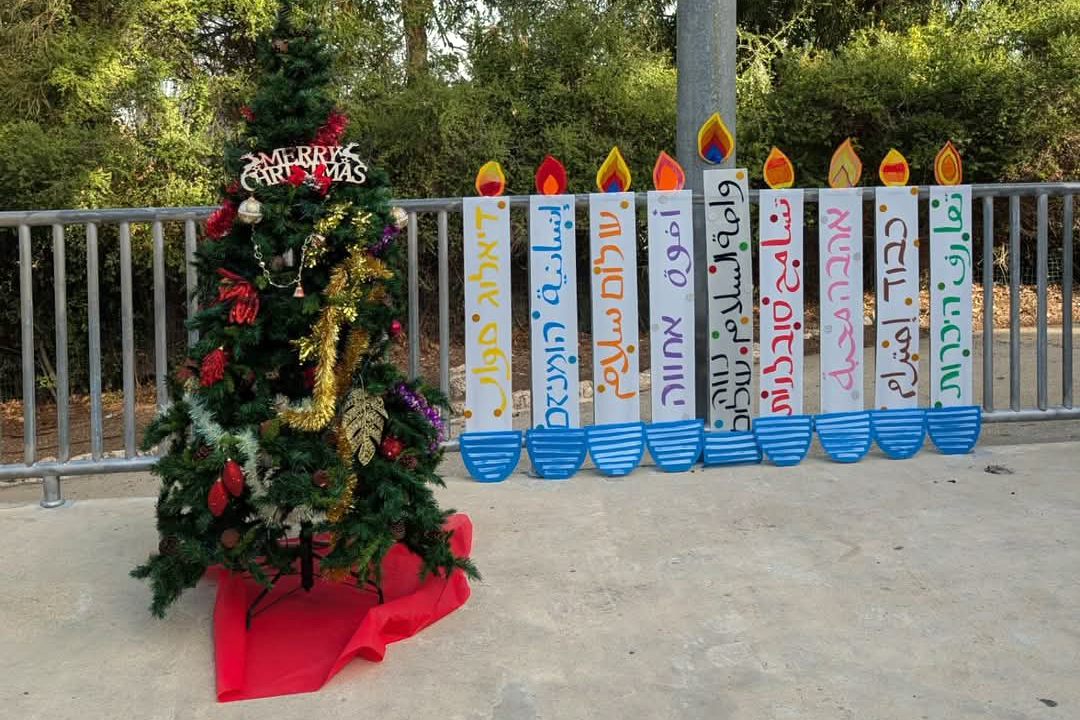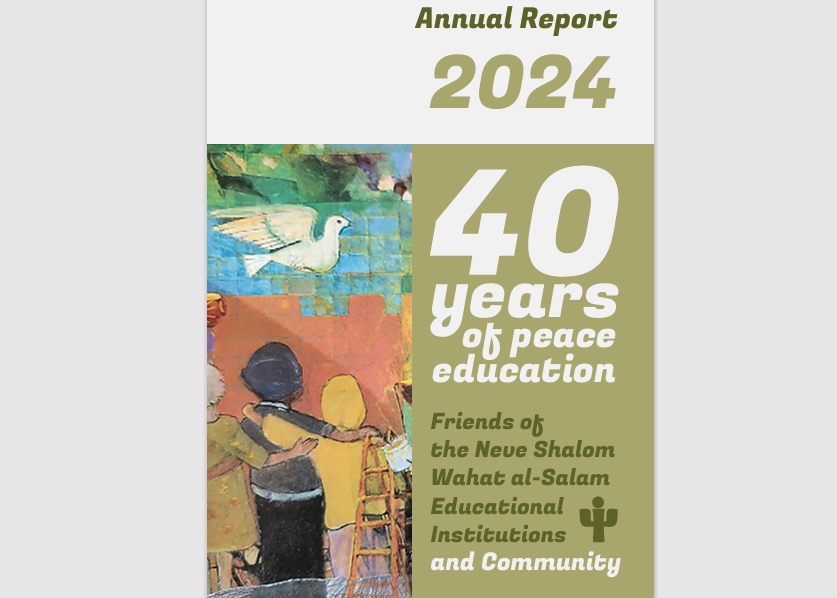Often the hardest part of a project is the “valley” that separates an idea from the resources, recruitment and assistance it needs to get off the ground. That is how the Project Development Hackathon was born.
The concept behind the PDH, a day-long event held in September, focused on moving beyond ideas, to collaboration and implementation. Alumni of School for Peace courses and partners working with them attended the PDH. Each team came with plans for initiatives ranging from raising awareness to ending the occupation.
The day began with SWOT analysis (strengths, weaknesses, opportunities, threats) a model that helps groups assess their own plans somewhat objectively and compare them with others. Working, as well, on a peer-to-peer model, the teams were able to discuss issues that are common to all of them, and which often make it difficult to proceed. In these sessions, questions around recruitment, how Palestinian and Jewish partners who come to activism with different objectives can work together, and how to deal with content that is personal as well as political.
Two alumni, Rawan Bisharat and Ilana Dorfman, facilitated workshops on resource development and collaboration.
By the end of the day, the ideas were moving past the concept stage. Each SFP alumnus presented to the group their plans for next stage in advancing their project.
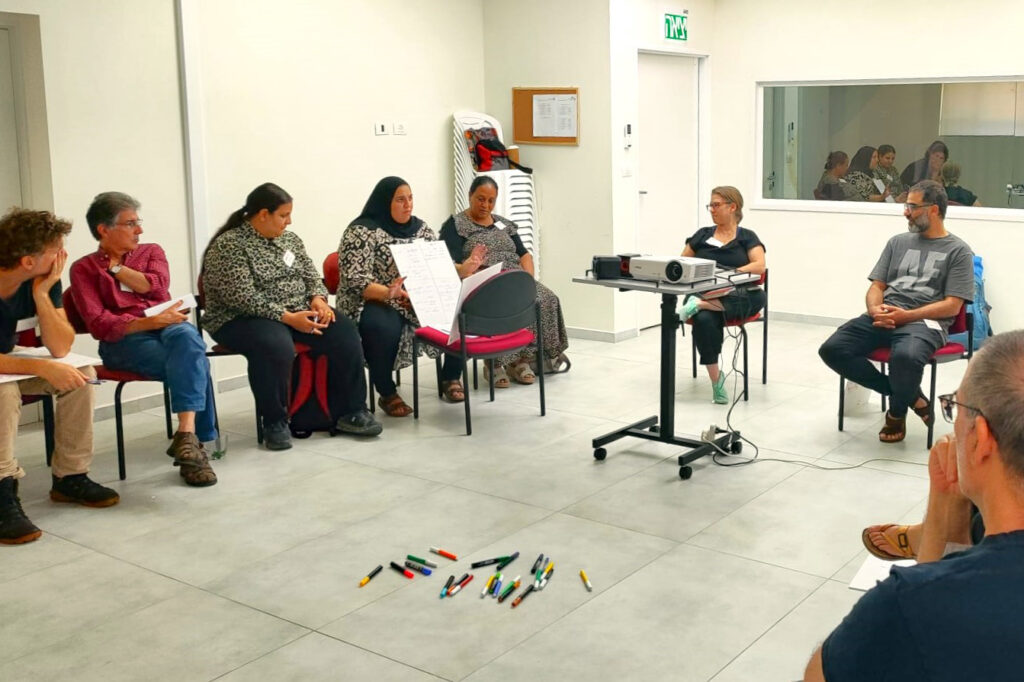
The participants also realized the value of feedback and support from their fellow alumni, as well as the great resource available to them in the pool of SPF graduates. They decided to create a WhatsApp group for those in the hackathon, as well as to reach out to other alumni via newsletter to update them on their efforts and invite them to join in the various projects.
The results of the PDH will be seen in the long run, as the alumni work to turn their plans into reality. But the feedback given at the end of the day told the organizers the participants were leaving with a clearer sense of their projects’ feasibility and how to proceed in turning those projects into reality.
Change Agents
The Change Agents course for Urban Planners passed its midpoint in October. Conducted with the Arab Center for Alternative Planning (ACAP), the course is set to run until March, 2025. It began with a three-day opening workshop in March, 2024, in which expectations were discussed, and such themes as the Nakba, repression, personal identity and responsibility were introduced.
Meetings alternate between Wahat al-Salam – Neve Shalom and Nazareth. In the first meeting in Nazareth, participants heard talks by Dr. Samer Sweid of ACAP, and architect Raneen Odeh, discussions of the unique obstacles faced by Arab planners and a tour of Nazareth. Prof. Oren Yiftachel spoke in the next meeting on the ways that Israel’s planners promote Jewish hegemony, while the discussion turned to the loss of life in Gaza. The war and Israeli government continued to be subjects of discussion, including the law giving ultra-orthodox a pass from conscription, the ongoing refusals to come to a cease-fire agreement and the mistreatment of detainees taken from Gaza. While not exactly related to the topic at hand, these discussions give Palestinians and Jews a safe space to air opinions and to be heard. Ultimately, the participants come to realize their struggles are the same struggle, and cooperation will be the only way forward. Fittingly, in the lecture by Dr. Enaya Banna-Jeries then delivered a lecture on “Planning and Construction in Palestinian Society,” she pointed out the ways we live in spatial segregation.

